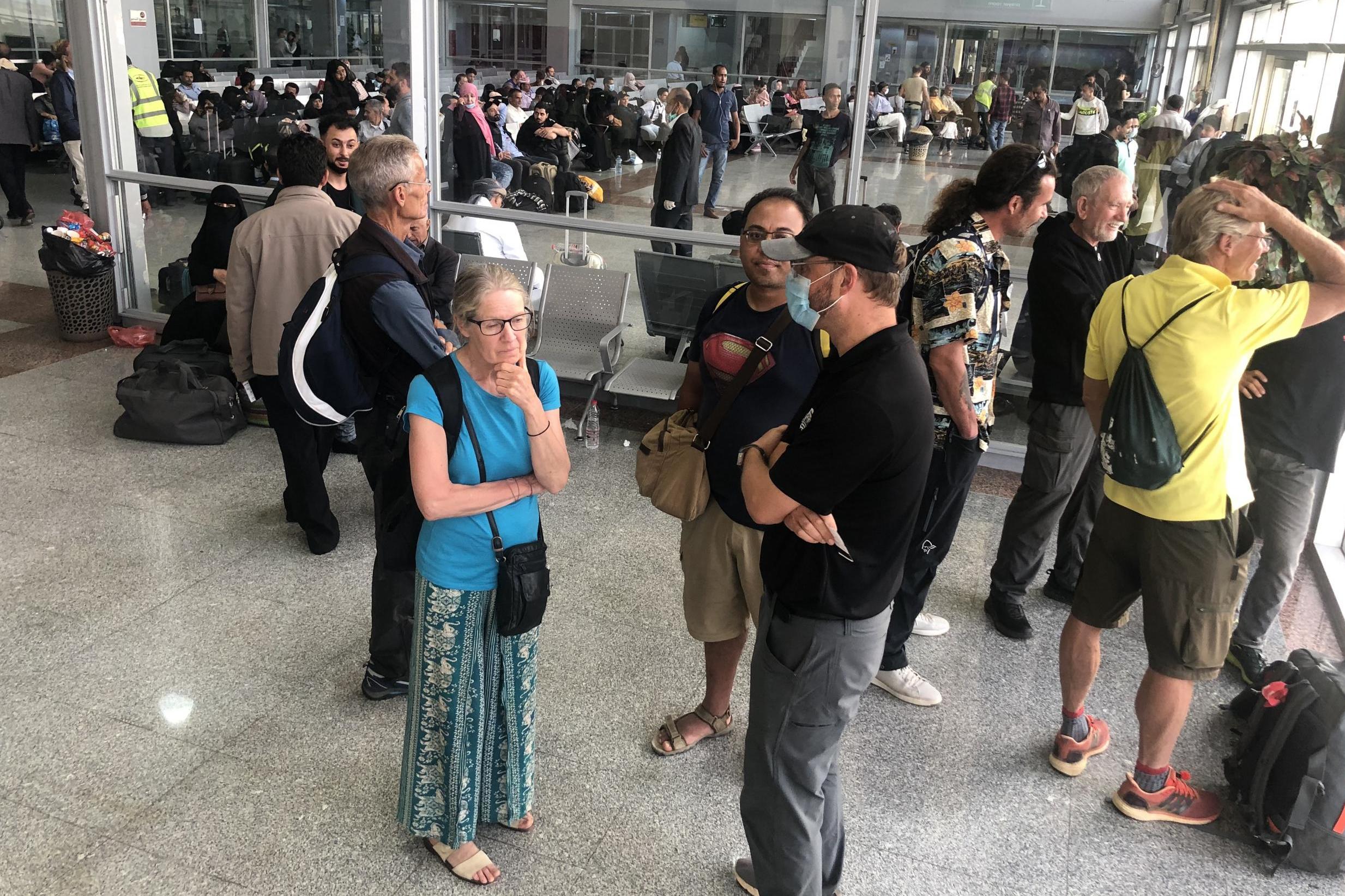Coronavirus: Flight bans don't work, say health professionals
Plane Talk: The world seems to have had enough of experts

Your support helps us to tell the story
From reproductive rights to climate change to Big Tech, The Independent is on the ground when the story is developing. Whether it's investigating the financials of Elon Musk's pro-Trump PAC or producing our latest documentary, 'The A Word', which shines a light on the American women fighting for reproductive rights, we know how important it is to parse out the facts from the messaging.
At such a critical moment in US history, we need reporters on the ground. Your donation allows us to keep sending journalists to speak to both sides of the story.
The Independent is trusted by Americans across the entire political spectrum. And unlike many other quality news outlets, we choose not to lock Americans out of our reporting and analysis with paywalls. We believe quality journalism should be available to everyone, paid for by those who can afford it.
Your support makes all the difference.You may not loathe me (just give it time), but plenty of people seem to.
I have spent the past week doing all I can to advise travellers about their options in this most crushing of crises. But before that I spent 10 days travelling through the Middle East, trying to keep pace with flight bans.
Saudi Arabia’s grounding of air links to Egypt saw a planned 90-minute flight turn into a two-day slog across Jordan, Israel and the Sinai Desert. I made what turned out to be the last flight from Cairo to the Yemeni island of Socotra and, thanks to an alert tour operator and an early hours call, the last flight back from Socotra to the mainland.
I could have done without the 10-hour wait at Aden airport (though tell me another terminal where a cup of tea costs just US$1), and without paying nearly £700 for a four-hour flight back from Cairo to Heathrow. But the coronavirus crisis will, I hope, make more accepting travellers of us all.
A fair number of people who heard of my journey found it wholly unacceptable.
“Surely you should have self-isolated for 14 days when you came back from all those countries,” one social media user insisted. There is no mathematical correlation between the number of countries visited and the risk presented of contracting – and, more concerningly, spreading – coronavirus.
All the countries I visited were experiencing far lower rates of infection than the UK and, at the time of writing, Yemen had no cases at all. Airports, where bio-hazards from around the world mingle, have always constituted risk areas – but scrupulous personal hygiene can minimise the threat.
Another source of widespread outrage, happily not directed at me, is that travellers arriving by air into the UK are not immediately tested for symptoms of Covid-19. The British government has concluded that it would be ineffective – and actually appears to have read the World Health Organisation (WHO) view on flight bans, unlike almost every other group of politicians worldwide.
Some people see a direct link between air travel and the spread of coronavirus. Initially, that was doubtless the case. Aviation is guilty as charged: Covid-19 was brought to Europe by passengers on commercial airlines. But the WHO says shutting airspace is futile once local transmission of coronavirus has begun.
That hasn’t stopped dozens of countries from blocking their countries from international aviation. Luxembourg and Belize closing their airports, as happened on Tuesday, does not present much of a problem; Dubai and Singapore certainly does. The world seems to have had enough of experts.
In the vain hope that it might help, or at least prevent a similar response in the awful event of another global pandemic, allow me to let the WHO speak out about flight bans. “Evidence shows that restricting the movement of people and goods during public health emergencies is ineffective in most situations,” say the medical experts at the WHO.
The only circumstances in which a temporary restriction on the movement of people may prove useful, the WHO doctors believe, is “in settings with few international connections and limited response capacities”.
So Yemen’s sudden shutdown of flights, which nearly caught me out last week, has merit. But severing international travel links, as practised from America to India to Israel, is regarded as counter-productive: “Restrictions may interrupt needed aid and technical support, may disrupt businesses, and may have negative social and economic effects.”
Turning away people based on their nationality or recent travel history is certainly not what the doctors ordered. But you might not like me saying so.
Join our commenting forum
Join thought-provoking conversations, follow other Independent readers and see their replies
Comments